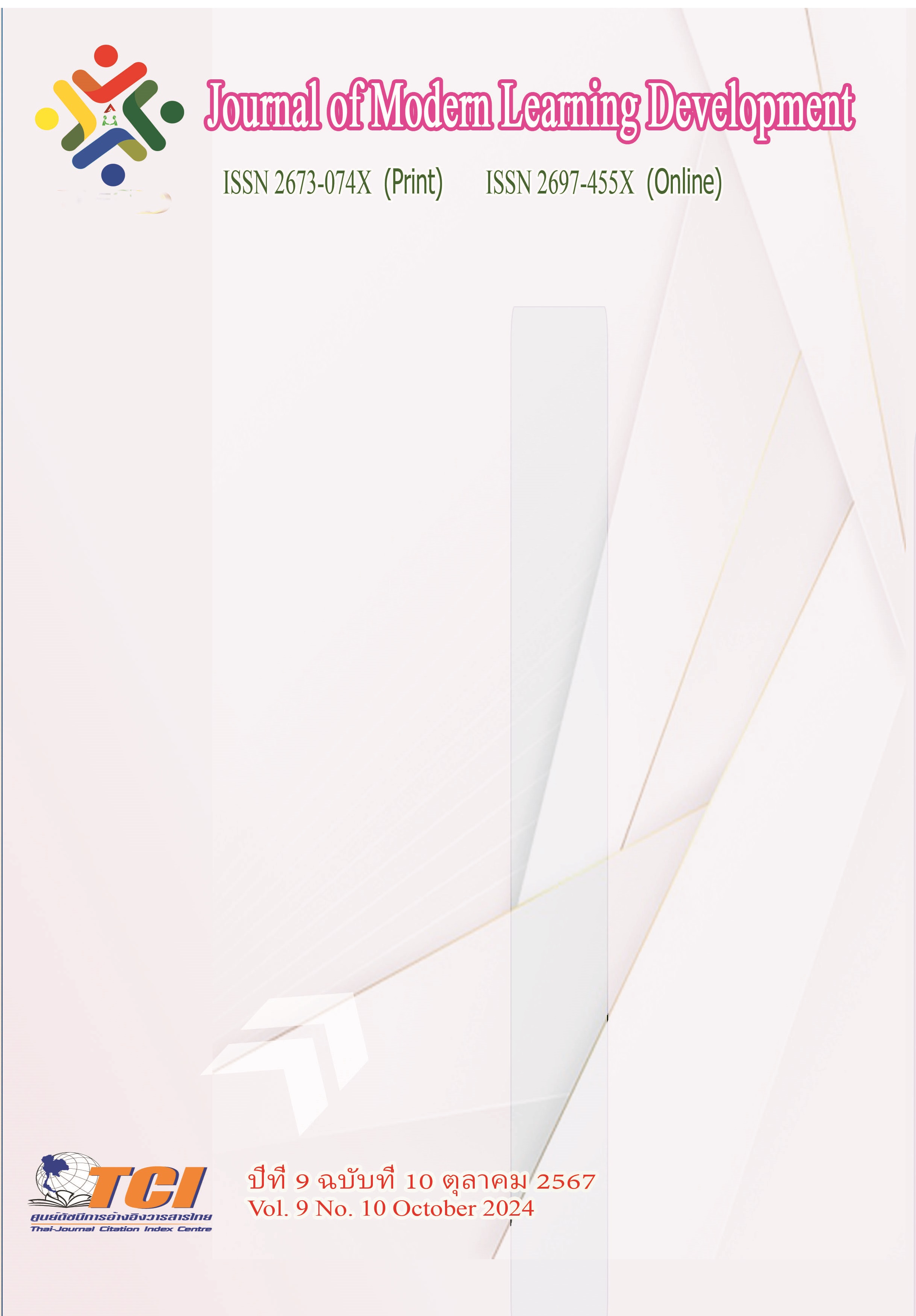The Mediation Effects of Job Performance and Occupational Stress on the Relationship Between Professional Identity and Occupational Well-Being of Teachers in Normal Universities and Colleges in Anyang City, Henan Province
Main Article Content
Abstract
Background
The rapid growth of China's higher education sector, particularly in Anyang City, has led to increased pressures on university educators, contributing to significant occupational stress and burnout. Despite extensive research on the well-being of primary and secondary teachers, studies focusing on university educators remain limited. This study addresses the gap by investigating the mediating effect of professional identity on occupational well-being in university settings. Understanding this relationship is crucial for developing strategies to enhance educators' professional experience, reduce stress, and ultimately improve the overall quality of education in higher institutions.
The aims of this research were: (1) to study the components of professional identity, occupational Well-being, job performance, and occupational stress of teachers in normal universities and colleges in Anyang City, Henan province, (2) to develop a model for professional identity, occupational Well-being, job performance, occupational stress of teachers in normal universities and colleges in Anyang city, Henan province, and (3) to verify the effect of mediating effects on the relationship between professional identity and occupational Well-being of teachers in normal universities and colleges in Anyang city.
The research methodology in this study was a quantitative survey research method was employed in this research. The population were teachers who were teaching in universities and colleges in Anyang City, Henan. The samples were randomly selected from the population by using the proportional stratification random sampling method. The G*power software was used to calculate the sample size, 455 samples were selected. The 5-point Likert’s rating scale questionnaires were developed for data collection. Data analysis was descriptive statistics to describe the characteristics of samples, The Confirmatory Factor Analysis (CFA) was used as a measurement analysis model, and the Structural Equation Model (SEM) for hypothesis testing.
Research findings were (1) there were 4 components, named professional identity, occupational Well-being, job performance, and occupational stress were adequate components in the research of teachers in normal universities and colleges in Anyang City, Henan province that fit the empirical data. (2) The development measurement model for professional identity, occupational Well-being, job performance, and occupational stress was a good fit for empirical data. (3) Occupational stress on the relationship between professional identity and well-being, but job performance did not have a mediating effect.
Article Details
References
Anyang Municipal Bureau of Statistics. (2023). Statistical Bulletin on National Economic and Social Development of Anyang City in 2022. Anyang: The Anyang Investigation Team of the National Bureau of Statistics.
Beijaard, D.,et.al. (2004). Reconsidering research on teachers’ professional identity. Teaching and Teacher Education, 20 (2), 107-128.
Brouwers, A., & Tomic, W. . (2000). A longitudinal study of teacher burnout and perceived self-efficacy in classroom management. Teaching and Teacher Education, 16 (2), 239-253. .
Campbell, J. P. (1990). Modeling the performance prediction problem in industrial and organizational psychology. In M. D. Dunnette & L. M. Hough (Eds.), Handbook of industrial and organizational psychology (Vol. 1, pp. 687-732). Palo Alto, CA: Consulting.
Cao, Jian et al. (2023). Statistical Bulletin on the Development of National Education in 2022. Beijing: Ministry of Education of the People's Republic of China.
Chen, Baosheng. (2019). 2019 National Conference on Education Work. 2019 National Conference on Education Work. Beijing.
Day, C., & Gu, Q. (2010). The new lives of teachers. Routledge.
Diener, E., Oishi, S., & Lucas, R. E. . (2009). The Oxford handbook of positive psychology (2nd ed., pp. 187-194)Subjective well-being: The science of happiness and life satisfaction. In S. J. Lopez (Ed.), . London: Oxford University Press.
GeXiping. (2010). The attributes, value, and enhancement of occupational happiness. Academic exchange.
Judge, T. A., & Bono, J. E. (2001). Relationship of core self-evaluations traits—self-esteem, generalised self-efficacy, locus of control, and emotional stability—with job satisfaction and job performance: A meta-analysis. . Journal of Applied Psychology, 86 (1), 80-92.
Kirk, S., & Sang, K. J. . (2013). The mediating effects of self-efficacy on the relationship between professional identity and teaching performance in university teachers. Journal of Educational Psychology, 105 (2), 357-369.
Nana, Z. (2021). Research on Psychological Capital, Occupational Well-being. Tianjin University of Technology and Education.
PanPing. (2019). A Research on the Relationship between Occupational Stress and Work Performance of College Teachers. Southwest University.
Pei, Miao & Li, Xiaoyan. (2015). Research progress on the happiness of foreign teachers. Teacher education research, 93-97.
Salanova, M., et.al. (2010). The gain spiral of resources and work engagement: Sustaining work engagement and performance over time. Work & Stress, 24 (3), 258-279.
Saxberg, H., & Holt, M. (2014). Teacher identity and job satisfaction: A review of recent research. Journal of Educational Research, 12 (3), 45-62.
Seligman, M. E. P. . (2011). Flourish: A visionary new understanding of happiness and well-being. Free Press.
Shulman, L. S. (1986). Those who understand: Knowledge growth in teaching. Educational Researcher, 15 (2), 4-14.
Skaalvik, E. M., & Skaalvik, S. . (2015). Job satisfaction, stress, and coping strategies in the teaching profession: What do teachers say? International Education Studies, 8 (3), 181-192.
Tschannen-Moran, M., & Hoy, A. W. (2001). Teacher efficacy: Capturing an elusive construct. Teaching and Teacher Education, 17 (7), 783-805.
Wang, H. (2019). A Study on the Relationship among Teachers' Professional Identity,Job Burnout and Occupational happiness. Hainan Normal University, 12.
WeiShuhua. (2008). Research on Teacher Professional Identity. Southwest University.
Zembylas, M. . (2003). Interrogating “teacher identity”: Emotion, resistance, and self-formation. Educational Theory, 53 (1), 107-127.


